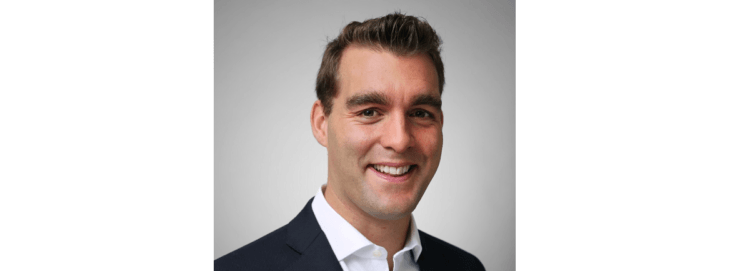Challenger brand Saltus is looking to disrupt the wealth management space with plain-speaking and a hybrid approach to tech, says Partner Mike Stimpson.
The firm defines itself as a challenger brand in the wealth management space, currently sitting on £3.5 billion of AUM.
Mike says its core values are “empathy and intellect”: the brand wishes to remove financial anxiety and “offer clear financial planning around what clients want to achieve.”
The firm’s founders came into the private client market from firms such as Goldman Sachs and private equity, with the idea of starting a wealth management company with a completely blank slate. The idea was to create the portfolios that they would want to invest in themselves, with the first clients being relatives and friends of the founders.
Now with £3.5 billion in AUM, the firm goes out to a much wider audience, with a brand built around the core values of “warmth and expertise”.
“We try to have that running through everything both internally and externally.”
For Saltus this means a number of things. Not least is moving away from the ubiquitous “dark blue and old people standing in front of windmills” – the Saltus website features stylised illustrations and vivid colours such as coral.
But the firm also tries to move away from a traditional approach to expertise by talking in a plain English style.
“We think our industry is known for being quite bad at using jargon which can make things difficult for people and in part, may make some people feel that they need an advisor just to help them understand.”
Saltus therefore provides free educational content on its website, offering tips about financial planning that readers can do on their own through the form of a new video or article each week.
The majority of new business comes from existing referrals, but there is also a digital marketing strategy built around amplifying content, such as guides on how to retire.
“We don’t do any TV advertising. The digital space gives more bang for your buck and opportunities to convert the leads that you’ve generated into clients.”
This thought leadership content includes regular research. One recent survey by Saltus, speaking to 2000 people with investable assets of over £250,000 found the extent to which wealthy individuals are having to help dependents due to the cost of living crisis.
Eighty percent of high net worth individuals were supporting their adult children in some way or another, be that with mortgages, school fees or even grocery bills.
There were clients who had put off retirement or taking fewer holidays, or were making financial decisions as a result, such as reducing pension contributions, tapping into housing equity or selling assets.
Mike argues that this environment doesn’t require a “revolutionary change” from wealth managers. Their task is still to create “a flexible, bespoke financial plan based on your goals and what you want to achieve.”
He adds: “Someone might have been wanting to retire in 2023 and live on this much money for the rest of their life. Now it might be they want to pay their kids’ mortgage for the next two years and therefore retire in 2025.”
Mike says that it’s important for individuals to maintain flexibility and constantly review circumstances, making sure that the plan and strategy is still appropriate. While the content of advice might change, the brand value of trust remains “completely crucial in all circumstances”.
If clients trust their manager to give the right advice, it makes the more difficult conversations easier to have, Mike says.
“At times like this, when you have to make difficult decisions and compromises, you need to be able to have open and honest conversations about what is achievable and what isn’t.
“Depending on their situation, it’s very likely we’ll say that that’s actually not achievable because the plan was this and suddenly we’re taking £2000 out of the contract. So we need to spend less on retirement or retire later or make different choices elsewhere. There’s a difficult conversation to have, and your clients need to know that you have their best interests at heart.”
The firm has made some recent acquisitions, bringing new advisors on board.
“We’ve invested quite heavily in our technology team over the last couple of years – we think there is significant room for improvement in the technology used by the industry,” says Mike, saying that the industry is divided between “robo-advisors where you can’t speak to a human or slightly old school investment managers where there’s no technology you can use.”
Saltus aims for a mixed approach, and is currently building a new portal and in-house technology, as well as building advice capacity to allow advisors to spend more time with clients.
“We want to use technology where technology is best and humans to focus on the bits they do best, such as building relationships and looking after clients.”

